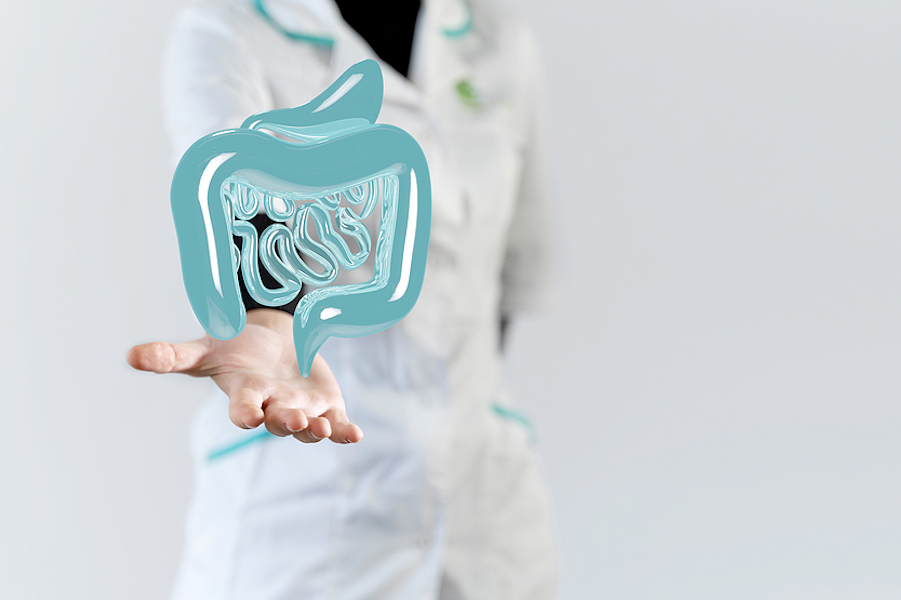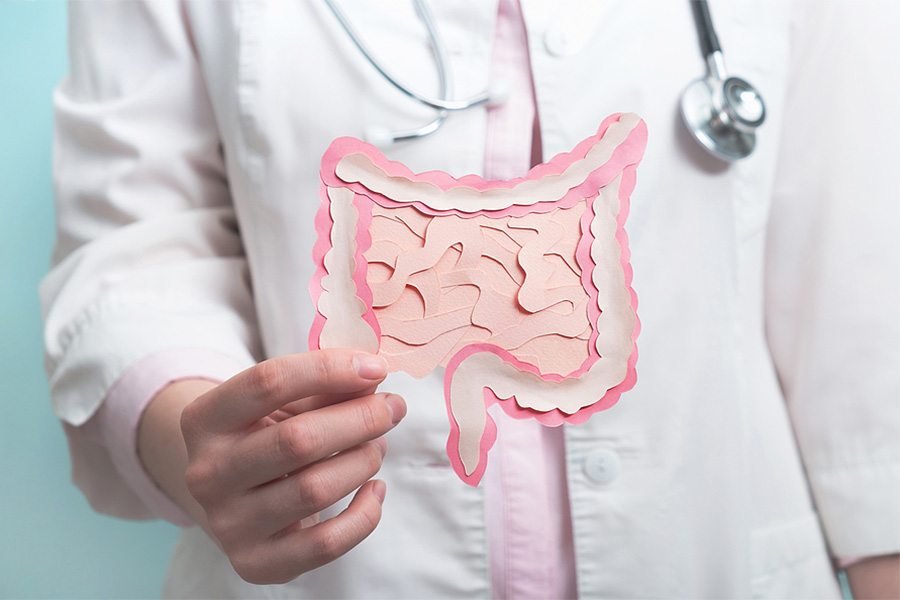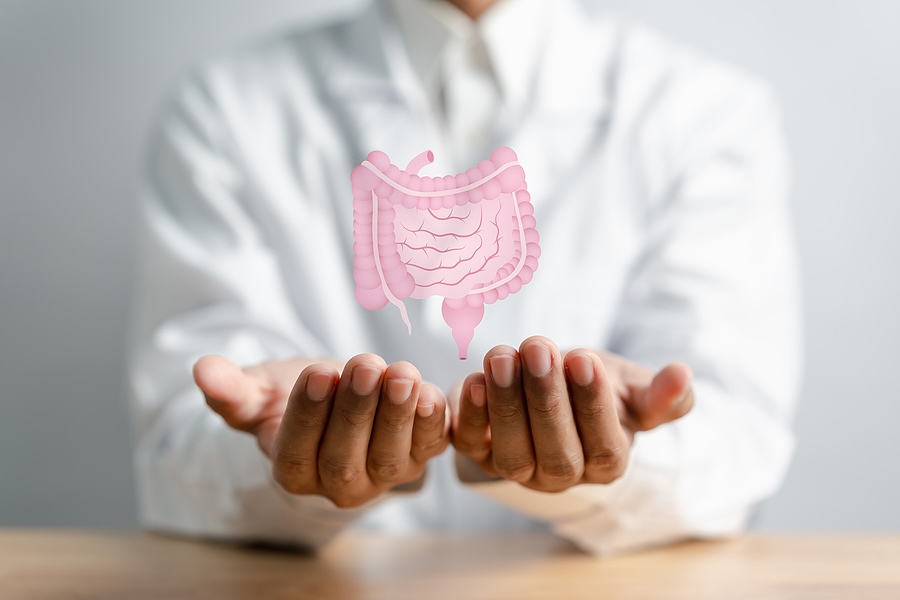I know how difficult it can be to prepare even one healthy meal each day, let alone three of them per day and healthy snacks as well! We are trying to juggle so many things in our fast paced lives, from work to relationships to caring for children or aging parents. Sometimes it seems easier to just grab whatever is close by and handy. But eating a healthy, well-balanced diet is the foundation for our optimal health.
The healthier the foods that we eat are, the easier it will be for our bodies to digest them and extract the nutrients it needs for us to maintain top health. Yet if we skip meals or eat unhealthy meals most of the time (an occasional splurge is to be expected) we aren’t giving our body the support it needs. In order for our bodies to work for us, they need our help. And even when we’re eating all the right things, the digestive tract is a complex system and sometimes needs extra support. I want to help you understand how the digestive system works, how specific digestive enzymes work, and what you can do if you find yourself having problems with your digestive system.
When we put food in our mouths, our digestive tracts start the miraculous process of transforming that food into usable nutrients, uniting a combination of biochemical players whose job it is to carry out the task. The digestive enzymes play a substantial role in the digestive process, as the all-important “cleavers” that turn big food molecules into smaller ones and allow us to absorb vital nutrients that our bodies need to function properly. Without these enzymes, a lot can go wrong.
Each of the nutrients in the food we eat and the beverages we drink have the important job of regulating our daily activities, including providing an ample amount of energy, creating new body tissues, and cleansing our system of toxins and free radicals that can make us sick. Similarly, each chemical member of the digestive tract team also has a specific purpose.
If just one member of the chemical team is not able to do its job correctly, it can throw off the whole digestive system causing troubling symptoms such as bloating, gas, nausea or diarrhea, or a sense of constant fullness, thereby making it harder to eat regular meals. If the symptoms continue, more chronic conditions may develop, such as acid reflux, ulcers, irritable bowel syndrome, IBD diverticulosis or Crohn’s disease.
In other digestive health articles I describe the leading role of hydrochloric acid in our stomachs, as well as the protective role of the “good” microflora in our guts. Let’s take a closer look at how and where the different types of digestive enzymes, sometimes called the “sparks of life,” do their job. This can help you determine if digestive enzyme supplements could benefit your digestive health.
What are the specific functions of digestive enzymes?
Each digestive enzyme works best in a specific environment, and each section of the digestive tract offers that unique environment so that the enzymes can work in harmony to fulfill their role, which results in a healthy digestive system. The following list provides a brief overview of how the digestive tract and digestive enzymes work. Remember, this is a simplified view; in reality, it’s a very complex process.
- The mouth. As soon as we eat, the salivary amylase in the mouth starts the digestive process by breaking down bigger starch molecules (polysaccharides) into smaller ones, called maltose and dextrin.
- The stomach. As food moves through the digestive tract to the stomach, the gastric juices, made up of hydrochloric acid and pepsinogen, are then secreted by the parietal and chief glands in the stomach’s lining. The job of hydrochloric acid in the stomach is to dissolve the food, kill unwanted and sometimes harmful microorganisms, and convert the pepsinogen into a stomach enzyme called pepsin. This is important to remember because hydrochloric acid is the culprit in acid reflux. Pepsin is a proteolytic (protein-breaking) enzyme, and its job is to help unwind and break down protein molecules into smaller subcomponents. The majority of proteins are big molecules made up of units called amino acids (often called “the building blocks of life). Pepsin depends on the acidic environment of the stomach, which is why the majority of its work has to happen there.
- The small intestine. From the stomach, the partially broken down food gets pushed into the upper section of the small intestine, called the duodenum. At this stage of the digestive process, only a few of the proteins and carbohydrates have been broken down, while all of the fats that were consumed remain fully intact. This is where the pancreatic enzymes have to work their magic. The pancreatic enzymes trypsin and chymotrypsin digest additional members of the protein family, and function best in the more alkaline environment that the small intestine provides. Other pancreatic enzymes include pancreatic amylase, which continues breaking down starches into maltose; and lipase, which begins to digest fats into glycerol and fatty acids. I have found that a lack of these particular enzymes has a big impact on increased bloating and difficulty digesting foods, especially fats. Peristalsis, or the wave-like action of the smooth muscles of digestion, keeps this whole process moving along, and from here, the food moves down the section of the small intestine called the jejunum, where most absorption takes place.
- The large intestine. What remains of our food then proceeds into the large intestine, also called the colon. Several important functions take place here, such as the absorption of water and sodium, as well as the ongoing manufacturing and absorption of micronutrients with the help of the intestinal flora. What’s left over is then turned into stool and eventually exits the body via the rectum.
By now, all the digestive enzymes have had their moment in the digestive limelight. There are so many things that can go wrong during this complex process so it’s important to understand what’s happening. Then you can realize that much can also be done to improve the function of the digestive system. Each piece of the digestive process is equally important, from chewing food to the process of micronutrient uptake. It just makes sense, then, doesn’t it, that you should take your time while eating instead of rushing through meals on the go, and that you should eat regularly instead of skipping meals and replacing them with a quick snack that lacks essential nutrients.
If something goes wrong, your body will let you know with painful symptoms, including (but not limited to): bloating, gas, cramping, vomiting, heartburn, constipation, having a sense of fullness all the time, and diarrhea. If you suffer from these symptoms on a regular basis, there are some digestive enzyme supplements we have found can provide relief until you find the cause of the deeper issue, which you should pursue right away. Digestive enzymes are a great help for your digestive problems; however, if there is a more serious problem at work, it needs to be treated.
Are digestive enzymes safe to take? Which are the best digestive enzymes?
Certain enzymes should not be used by people with a history of certain digestive disorders, such as peptic ulcers. We strongly recommend that you work with your healthcare practitioner to find the best solution for your unique situation. However, there are a few safe exceptions, such as papain and lactase, as mentioned below. Don’t forget, though, that healthy digestion starts with healthy eating habits.
Betaine HCl is a combination digestive aid comprised of betaine, a vitamin-like substance, and hydrochloric acid. The digestive enzyme pepsin is often included in betaine HCl products. This digestive enzyme can be useful in treating patients with digestive issues such as acid reflux (GERD) — particularly those who have been found to have hypochlorhydria, a condition where the stomach does not produce enough acid. Betaine HCl is occasionally prescribed for patients with other forms of indigestion such as heartburn and gas, as well as rosacea, asthma, yeast, allergies and sensitivities. Healthy digestion depends on your stomach’s ability to dissolve large chunks of food and a highly acidic environment is necessary for this process to take place. The high acid content of betaine HCl can cause irritation of the stomach, and should only be taken while you are eating a meal; eat a quarter to half of your meal, stop and take the supplement, then finish your meal. Because this digestive enzyme can significantly change the pH in the stomach, we recommend betaine HCl be used only under the guidance of an experienced healthcare practitioner.
Multi-enzyme products (supplements) contain a wide spectrum of enzymatic ingredients; some of them support the action in the stomach while others work to boost the enzymatic action that happens further down the digestive tract. Listed below is an alphabetical list of just some of the several enzymes that these products can contain:
- Alpha-galactosidase
- Amylase
- Bromelain
- Cellulase
- Glucoamylase
- Hemicellulase
- Invertase [Sucrase]
- Lactase
- Lipase
- Maltase
- Papain
- Peptidase
- Protease
- Phytase
For the best results, consult a holistic healthcare provider for support with choosing a complete digestive enzyme product. One we regularly recommend to our patients at the clinic is Plantzyme by Metagenics. Other companies, such as Thorne, Standard Process and Zymogen, also have products that are very effective, but you can also get good results from products that are found in any health food store near you. You also always have the option to purchase products containing individual enzymes. Remember, each of these enzymes can target certain bonds in proteins, sugars, and other macromolecules to break them into their components. For example, lactose, a milk sugar, is poorly tolerated or not tolerated at all by many people all over the world.
People who suffer from lactose-intolerance, and occasionally want to be able to eat or drink dairy products, can choose to supplement their daily diets with lactase tablets or foods that include lactase. This is a safe and effective way to allow their digestive system to assimilate this milk sugar into it’s usable components. This can allow them to enjoy dairy products by helping prevent the bloating and discomfort that they would otherwise experience afterwards!
Pregnant women, who find themselves feeling nauseous upon waking in the morning or after eating a meal, may discover that taking a mild digestive enzyme such as papain (a proteolytic enzyme extracted from papaya) can sometimes help suppress that nausea. Papain has also been found to sometimes help to settle nausea when motion sickness is the cause. Isn’t it wonderful that something as safe and simple as papaya enzyme can solve these common problems? Some women find that using ginger will greatly help to relieve these symptoms as well.
Consult your healthcare provider for guidance in choosing an individual digestion enzyme best suited to fit your specific needs. Understand though, that it takes a special practitioner, fluent in this type of medicine, to know and understand how important enzymes can be to the entire digestive process.
Having a basic understanding of the digestive process is very important in understanding how your day-to-day choices can impact your overall health. If you suffer from digestive problems, the information provided in this article can help you talk to your healthcare provider about using digestive enzyme supplements to assist you as you work to find the root cause of your digestive problems. It is a wonderful place to start to see if things improve.
In reality, the digestion process is a much, much more complicated process than we can cover within the scope of this article. One of the most important things you can do as you move through your often fast-paced life is to slow down. You can give your digestive team its best shot by chewing your food carefully and for longer than 5 seconds. This will allow you to fully enjoy your food, and it will allow your body to break it down into digestible components. When you respect the role of your digestive enzymes, you are honoring yourself with the gift of full nourishment, which leads to an overall sense of well-being.
Having to suffer with a digestive disorder can disrupt your entire life. A digestive disorder can make you feel anxious about going out in public – never knowing when you may have to use the restroom, always looking to see where the restroom is and mentally estimating how long it would take to reach it if need be. It is disheartening to pull your favorite dress or suit out of the closet to find that you are so bloated you can’t wear it to a special event. Fear of embarrassing yourself, spouse/partner, or child at a school function because of the gas – especially if it is expelled in an unflattering way – can really limit what you choose to do.
These issues can take a toll on your emotional health as well, particularly because people who don’t experience digestive problems simply don’t understand why you might pass gas in public, or accidentally bump into someone in a mad dash to the restroom. These issues can cause you to miss out on a lot of great things in life – but they don’t have to. With the proper care and support from our healthcare practitioner and a commitment to ourselves – you can lead a normal, happy and healthy life!
For more information, browse all of our articles on digestion and GI health.








